Journal
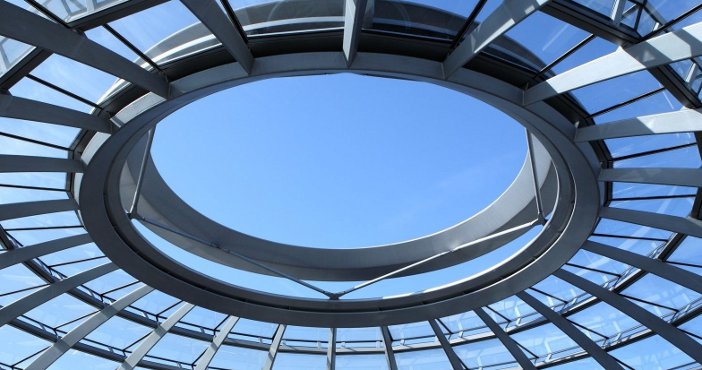
Dome of the Reichstag Building by Norman Foster, Berlin (Detail)
© Deutscher Bundestag / Arndt Oehmichen
Political Emotions
Focus Topic 2018
The discussion of fear, sorrow, outrage or contempt, but as well of faith, hope, compassion, empathy or sympathy, as political forces is presently increased. A consensus seems to exist on the central role of emotions in political processes: They are presumed to be a driving force both of protest movements as well as in democratic processes of opinion-forming, they seem to guarantee for the cohesion of political entities, they are accountable for psychological group phenomena such as subversion and revolution or for a turning of such movements into terror and fright. Yet, assessments of this phenomenon differ greatly. Whereas some deplore a lack of ›political passion‹, others warn of hysteria, of ›angry citizens‹ and of politics driven by emotions. Are ›politics of sentiments‹ legitimate, then, or is there instead a call for general skepticism towards strategies of emotional overwhelming? Should political decisions be taken rationally and is that possible, at all, or are politics simply unthinkable without emotions?
The Focus Topic »Political Emotions« aims to provide a space for the discussion of these questions at the Warburg-Haus. The lecture series in the first half of 2018 focuses on political cultures of emotions in democracy, on compassion, as well as on its darker sides, and on social states of affects in war (Hans-Peter Krüger, Sigrid Weigel, Fritz Breithaupt and Alexander Honold). The lecture series is accompanied by cooperation events on the representation and role of emotions in film, media, literature and the arts. The program of the first half of the year concludes with a special theme day on the cultural perception of (natural) catastrophs, jointly organized by the Warburg-Haus and the Research Centre Images of Nature at Universität Hamburg at the Hamburger Kunsthalle (Hamburg Art Museum). The Warburg International Seminar in October 2018 is dedicated to ›Political Emotions in the Arts‹: Which iconographies do current politics of emotions draw on, what are well established, codified dramaturgies that social movements move along, what well-known narratives are taken up in order to mobilize or contain political emotions? The lecture series in the second half of 2018 will then be devoted to representations of political affects (Hermann Kappelhoff, Irene Neverla, Eva Illouz and Andrea Pinotti).
Politische Emotionen
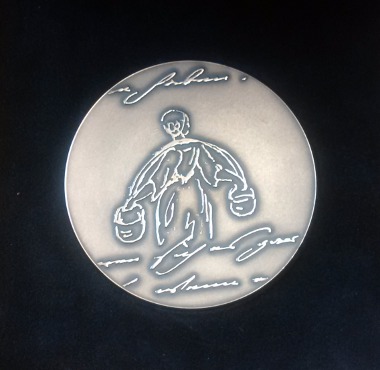
Online: Vortrag von Elisabeth Bronfen
Hermiones Rückkehr - Das Nachleben einer Pathosgeste
Vortrag der Trägerin des Wissenschaftspreises der Aby-Warburg-Stiftung 2017 Elisabeth Bronfen, Ordinaria am Englischen Seminar der Universität Zürich und Global Distinguished Professor an der New York University, anlässlich der Verleihung der Martin Warnke-Medaille am 19.12.2017 im Warburg-Haus…
Latenz in den Künsten / Martin Warnke-Medaille / Publikationen / Wissenschaftspreis
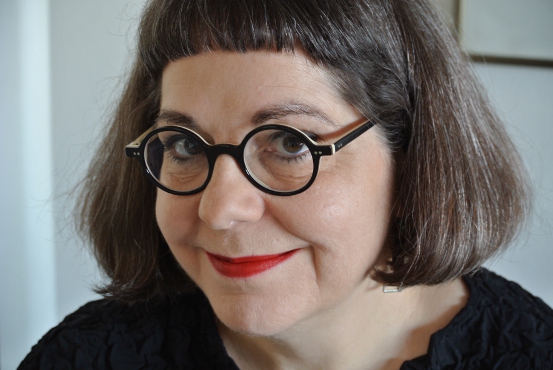
Verleihung der Martin Warnke-Medaille an Elisabeth Bronfen
Anschließender Vortrag der Preisträgerin: "Hermiones Rückkehr - Das Nachleben einer Pathosgeste"
Prof. Dr. Elisabeth Bronfen wurde am Dienstag, den 19. Dezember 2017, 19 Uhr, im Warburg-Haus feierlich die Martin Warnke-Medaille verliehen. Sie ist Ordinaria am Englischen Seminar der Universität Zürich und seit 2007 zugleich Global Distinguished Professor an der New York University. Ihre…
Latenz in den Künsten / Martin Warnke-Medaille / Wissenschaftspreis
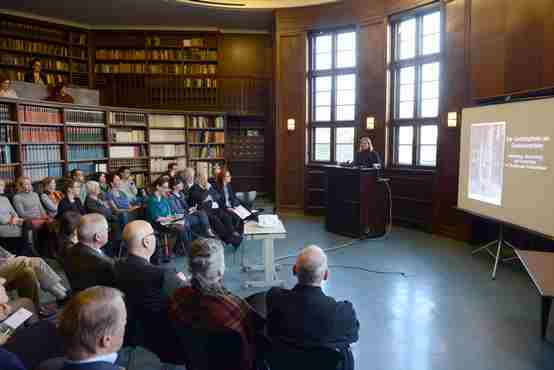
Lecture by Jacqueline Jung online
THE ›GERICHTSPFEILER‹ AS ›GEDANKENPFEILER‹: MOVEMENT, MEDIUM, AND MEMORY IN THE STRASSBURG SOUTH TRANSEPT
Long mediated by a few highly artificial photographs made in the 1920s, the monumental Pillar of Judgment (a.k.a. Pillar of Angels) in the thirteenth-century south transept of Strasbourg Cathedral has come to be understood as a fairly straightforward, if singular, example of Gothic religious art…
Publikationen / Wissenschaftspreis
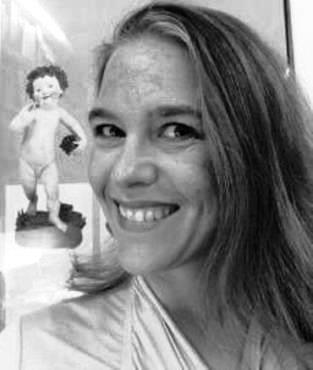
Jacqueline E. Jung ist Wissenschaftspreisträgerin 2016
Aby-Warburg-Stiftung zeichnet Forscherin der Yale University aus
Jacqueline Jung lehrt als Associate Professor am Department für Kunstgeschichte der Yale University europäische Kunst und Architektur des Mittelalters. Die Forschung zur figürlichen Skulptur in Deutschland und Frankreich bildet dabei ihren Schwerpunkt. Ihr Buch ‚The Gothic Screen: Space,…
Wissenschaftspreis